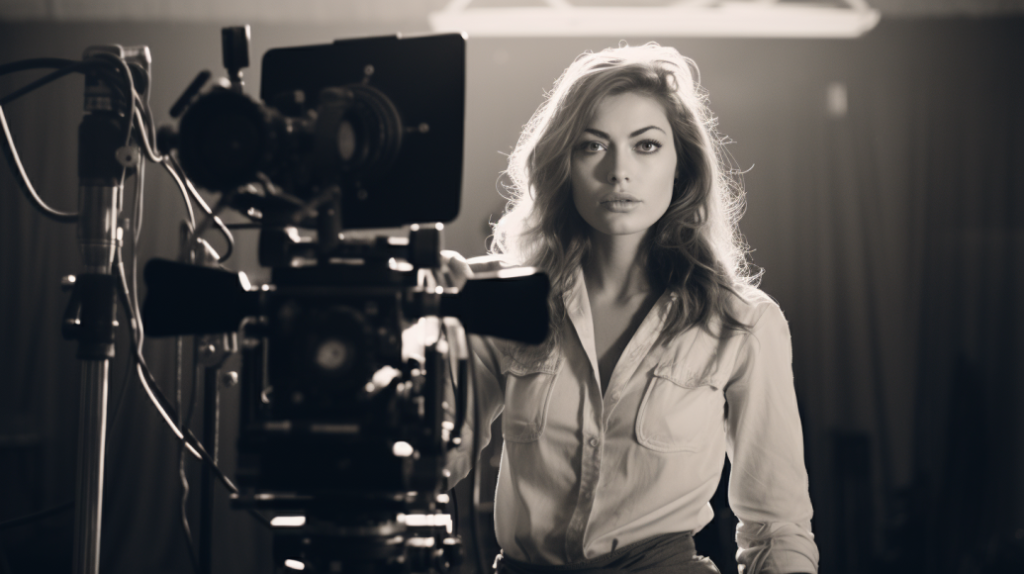Women have made significant contributions to cinema, shaping its history and evolution in ways that are often underappreciated. From acting to directing, producing, and writing, women have played pivotal roles in both the behind-the-scenes and on-screen aspects of filmmaking. Despite facing many challenges, including gender discrimination and limited opportunities, women in cinema have consistently pushed boundaries, creating groundbreaking work that has resonated with
One of the most influential contributions has been in acting. Women like Audrey Hepburn, Meryl Streep, and Cate Blanchett have not only brought complex characters to life but have also defined entire eras of cinema. These actresses have redefined the roles women can play in film, showcasing a vast range of emotions, experiences, and perspectives. Their performances have set the standard for what audiences expect from female characters, influencing how women are

In addition to acting, women have made profound strides in directing and producing films. Directors like Kathryn Bigelow, the first woman to win the Academy Award for Best Director, and Greta Gerwig, known for her successful films like Lady Bird and Little Women, have challenged the male-dominated landscape of directing. They have brought fresh perspectives to filmmaking, with a focus on stories that deeply resonate with diverse audiences. Female producers, such as Shonda Rhimes and Kathleen Kennedy, have also been instrumental in shaping the entertainment industry, creating iconic television series and blockbuster films.
Women have also been trailblazers in writing for film, crafting stories that are personal, innovative, and thought-provoking. Screenwriters like Nora Ephron, whose works like When Harry Met Sally have become timeless, and Diablo Cody, known for Juno, have used their voices to address important social issues, push creative boundaries, and highlight the female experience. Their work has paved the way for future generations of female writers, providing a platform for stories that challenge stereotypes and offer diverse narratives.
The history of cinema has seen many women fighting for representation and visibility. Early cinema pioneers such as Alice Guy-Blaché, the first woman to direct a narrative fiction film, and Lois Weber, one of the most successful directors of the silent film era, set the stage for future generations. These women often faced societal barriers and limited access to resources, but they persevered, proving their invaluable impact on the development of the cinematic form.

Despite the remarkable contributions of women in cinema, gender inequality still exists. Women directors, producers, and writers are often underrepresented, and female characters frequently remain marginalized or stereotyped. However, recent movements like #MeToo and Times Up have brought increased attention to the issue, pushing for systemic changes in the industry. As more women take on leadership roles in filmmaking and advocate for equality, the future of cinema looks more inclusive, diverse, and reflective of the many voices that have always been part of the cinematic world.
In conclusion, women’s contributions to cinema are both significant and transformative. From on-screen performances to behind-the-scenes innovations, their work has shaped the direction of the film industry. As the industry continues to evolve, it is essential to recognize and celebrate the ongoing impact that women have on cinema, ensuring that their voices are heard and valued in every aspect of filmmaking.
